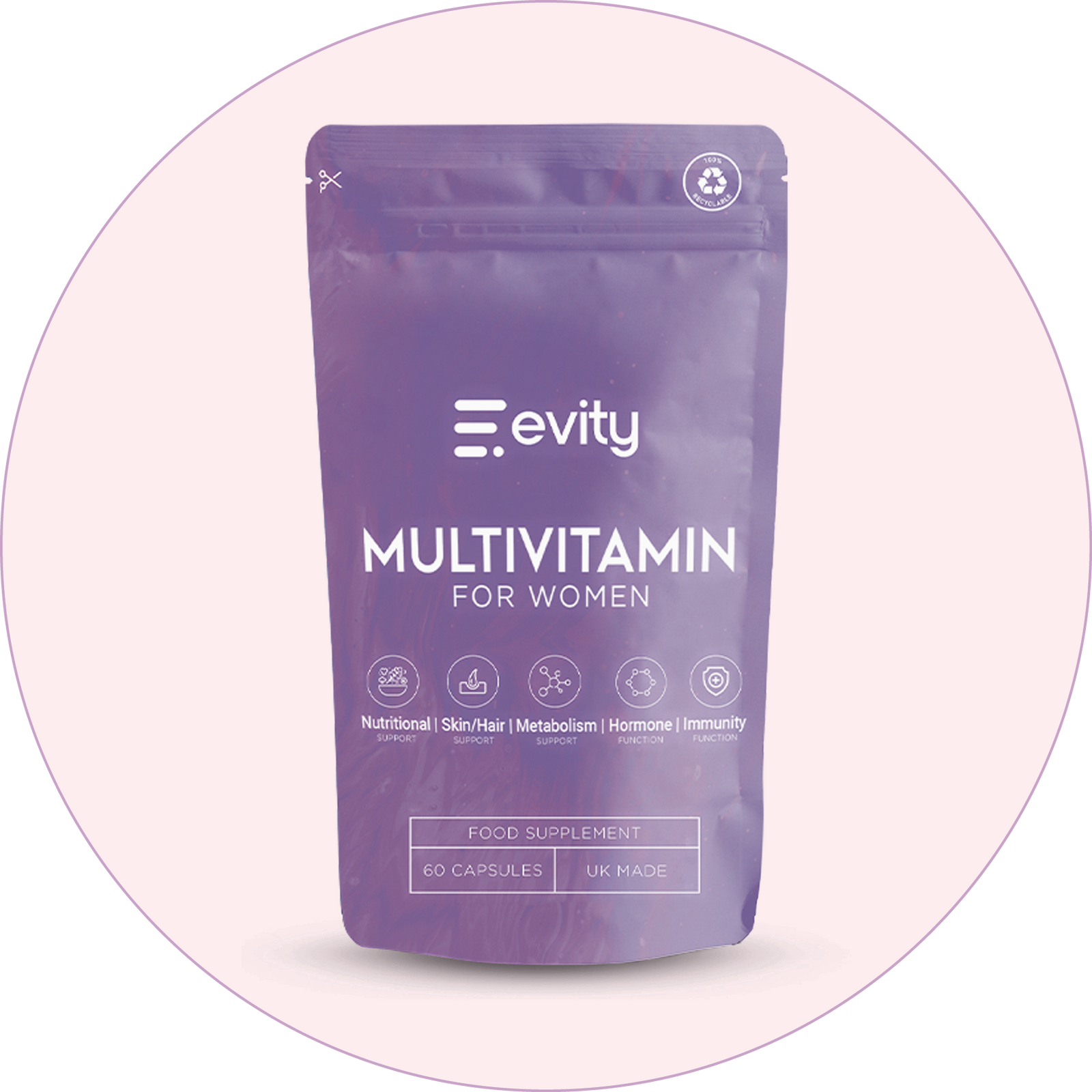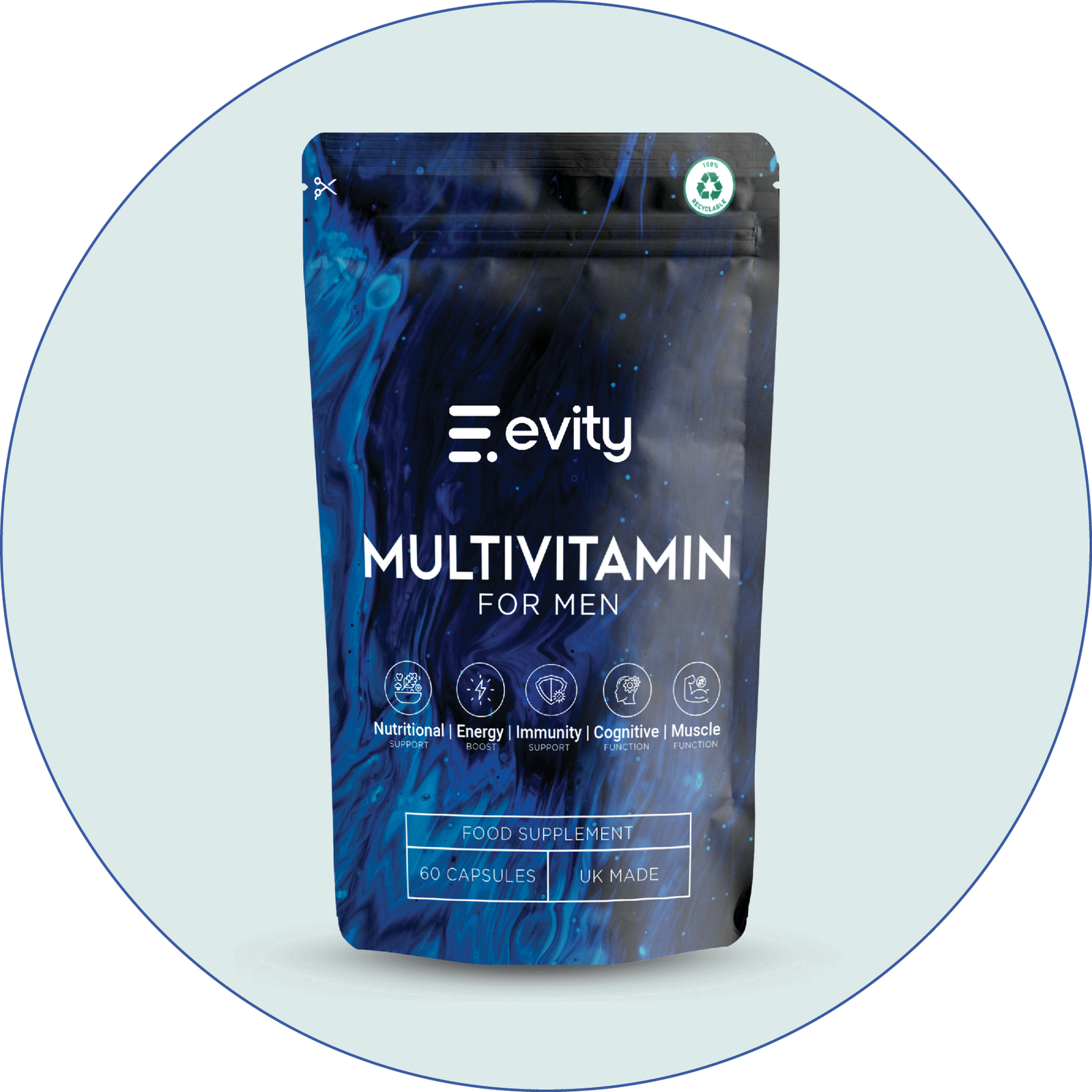
Benefits of Vitamin A in the body
Skin health
Vitamin A is essential for skin and mucous membranes, which are the protective barriers that line many surfaces and organs in thebody, (1) including the lining of the gut, nose, eyes, lungs and female reproductive tract. Some studies have shown that as well as keeping the skin healthy it also helps reduce the occurrence of wrinkles by stimulating skin cell growth andcollagen production (2).
Eye Health
Vitamin A is vital for thedevelopment of eyes and sight for babies during pregnancy, it’s essential for mothers sight too (3). Studies have also shown that it can also improvetear quality (4), and tears are part of our front line immunity defences!
Heart health
Vitamin A is also a powerful antioxidant and can help to reduce the harmful risk factor homocysteine, an amino acid that shouldn’t build up within the body. Vitamin A may also help to protect against plaques forming inarteries (5).
Immunity
Vitamin A hasanti-inflammatory properties (6) and has been shown to help regulate the body’s immune response to infections, for example it’s been shown to reduce complication in childhoodmeasles infection! (7)
Why our form of A is superior
The Vitamin A acetate we use in our evity multivitamins is a natural form of vitamin A, in its most bioavailable and active form, ready for the body to use. Not only that, but It has high levels of beneficial active compounds which can enhance itsantioxidant properties (8).
Foods rich in vitamin A
- Animal liver is the highest source of vitamin A, it’s always best to choose organic for the best quality! Not a fan? Pate can be a good way to start eating if you are not used to it!
- Oily fish, some of our favourites are salmon, tuna and trout.
- Cheese
- Eggs
- Orange fruits and vegetables like mangoes, papaya, many of the squashes, carrots, sweet potatoes are all great plant sources.
Daily recommended intake of vitamin A
Wondering how much you need daily? The daily intake for healthy adults should be800mcg (9).
Latest research of vitamin A
Health in obese individuals. Being overweight whilst simultaneously undernourished is becoming more common and increases health risks to those individuals. Research has shown that those suffering from obesity have a risk of being deficient in vitamin A at a cellular level. Supplementing may improve nutrient status and help protect against infection. (10)
Cognition
The latest studies have linked good levels of vitamin A levels and supplementation with beneficial effects oncognition - specifically for potentialanti-aging effects on brain cells! (11, 12)
Gut health
Vitamin A’s ability tosupport mucosa (gut lining) healing alongside it’s anti-inflammatory properties make it helpful in supporting those suffering frominflammation within the bowel, for example in conditions like inflammatory bowel disease. Vitamin A has also been shown to be beneficial for thegut flora. (13, 14, 15)
Problems with overdose
As a fat soluble vitamin, there is a risk of over consumption and toxicity, because our body is able to store fat soluble vitamins. Daily intake of 20 times the average healthy intake would put an individual at risk.
Hypervitaminosis A (too much vitamin A in the body) may cause various skin problems, as well as diarrhoea, nausea, anorexia, abdominal discomfort, and vomiting.
References:
- https://efsa.onlinelibrary.wiley.com/doi/epdf/10.2903/j.efsa.2010.1754
- https://aspenjournals.onlinelibrary.wiley.com/doi/abs/10.1002/ncp.10420
- https://pubmed.ncbi.nlm.nih.gov/9732305/
- https://www.ncbi.nlm.nih.gov/pmc/articles/PMC6462169/
- https://jesp.journals.ekb.eg/article_165935_6222f78ec820c28f41e61471c7d0a34f.pdf
- https://www.mdpi.com/2077-0383/7/9/258
- https://journals.lww.com/infectdis/Fulltext/2020/07000/Vitamin_A_for_the_Management_of_Measles_in_the.2.aspx
- https://pubs.rsc.org/en/content/articlelanding/2020/fo/d0fo01776k/unauth
- https://eur-lex.europa.eu/legal-content/EN/TXT/?uri=CELEX:32011R1169
- https://onlinelibrary.wiley.com/doi/abs/10.1002/oby.22929
- https://www.annualreviews.org/doi/abs/10.1146/annurev-nutr-122319-034227
- https://www.nature.com/articles/s41366-020-00723-z
- https://www.sciencedirect.com/science/article/abs/pii/S0963996921004671
- https://www.sciencedirect.com/science/article/abs/pii/S0965229918307507



